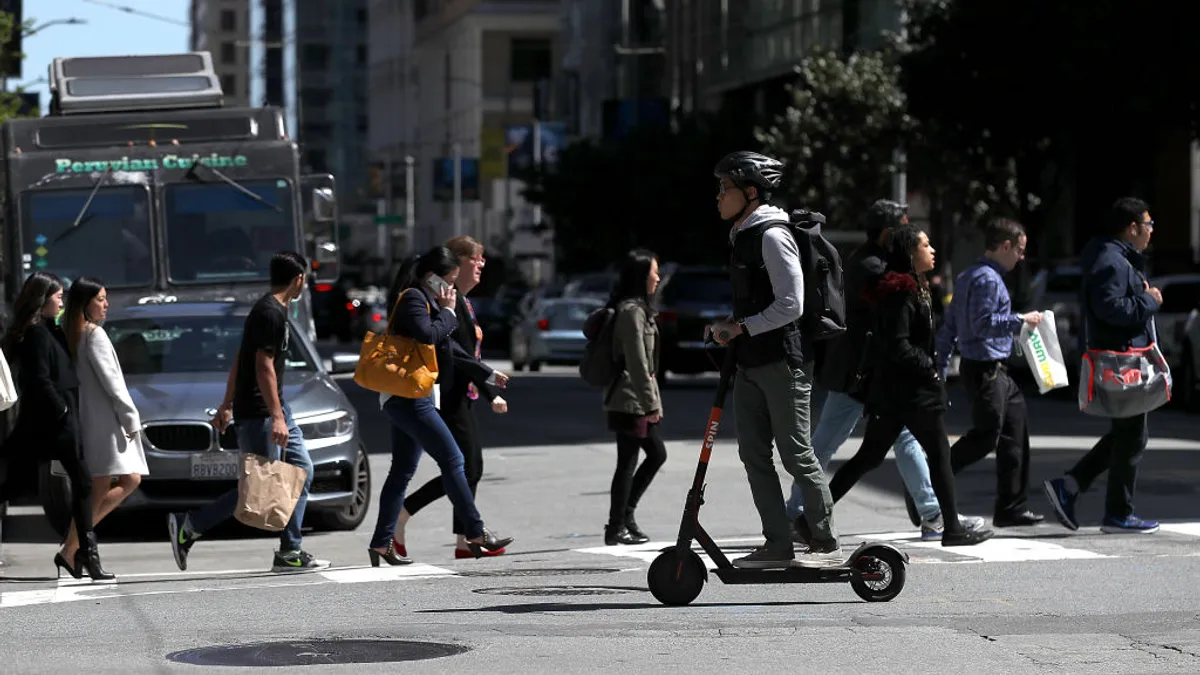Micromobility industry leaders and city operators have access to federally backed guidance that outlines how they can make bike and e-scooter sharing programs more available to people from underserved communities, with lower income, or who have physical mobility issues.
The report, Mobility for the People: Evaluating Equity Requirements in Shared Mobility Programs, was published this summer by researchers from the University of Oregon and the Greenlining Institute and funded by the U.S. Department of Transportation’s National Institute for Transportation and Communities.
The authors evaluated two main strategies that cities and transportation organizations have used to address barriers that certain populations face in accessing shared micromobility services. Some have defined equitable transportation and tried to develop frameworks on achieving it through mobility programs. And some have simply placed requirements on operators, the report noted, including in the form of reduced fares, multilingual services, cash payment compatibility, non-smartphone access, adaptive vehicles for users with disabilities, mandated geographic service areas, and targeted marketing and outreach.
Researchers collected information on 239 shared micromobility programs throughout the U.S. While 62% of programs try to address equity issues through requirements outlined in policy documents, the types of efforts varied widely. Programs that offered both e-scooters and bicycles were more likely to incorporate equity programs than standalone programs for either vehicle type, though scooter-only programs made up a greater proportion of efforts than bike-only programs.
The study suggests the difference could be due to the fact that scooter programs are newer and awareness is growing of the need for policies that address historic and systemic transportation inequities and exclusion.
Despite their efforts, few of the programs tried to measure outcomes. “Offering a service — whether it is a bike on a corner or a reduced fare — is insufficient to ensure access,” the report notes.
The program may place bikes in all neighborhoods but that won't help if people can't afford the cost or find the system too burdensome. In Portland, Oregon, it is challenging for some people to sign up for its discounted Spin Access e-scooter program in person because the provider's office is only open for a few hours one day a week, the report stated. And while many programs collect data about where and when trips start and end, they don’t always collect data on who is riding. The authors suggest user surveys, which some cities require scooter operators to conduct.
And some cities haven't even outlined what equity goals they're trying to achieve. “Based on the data we gathered and the case studies we conducted, we find that by and large, cities are not conducting mobility needs assessments prior to shared micromobility program launch to determine how a program fits within the broader context of community priorities, or even if it is a priority for a community,” the authors stated.
The study found that cities do better at advancing equity if they dedicate staff time to managing shared mobility programs. It highlights Baltimore as an example of a city that hired a full-time staff member to oversee its dockless vehicle program.












